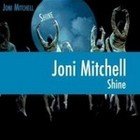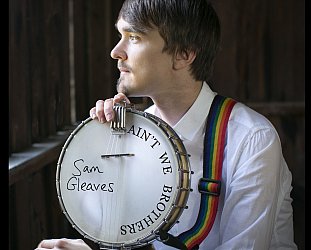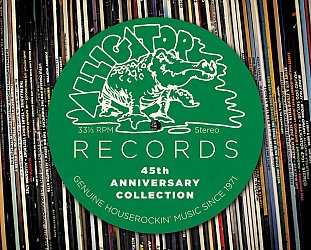Graham Reid | | 2 min read
Joni Mitchell: One Week Last Summer

Despite critical acclaim and mega-sales for two decades or so after the early 70s, Joni Mitchell was never a happy traveller in the music industry, and frequently denounced it.
The most recent crunch for her came when she was told by a music exec that her 2002 album Travelogue (new arrangements of old songs which she did partly as a contractual obligation to her longtime label Warners) was a work of genius. But they didn't know what to do with it.
(Frankly, I endured that precious piece of self-important revisionism and I'm with him.)
But Mitchell was probably used to hearing the "genius" bit of that sentence, however as David Crosby noted (see tag for Blue), Joni was never in doubt of her worth.
Mitchell was already in semi-retirement anyway at the time so announced her complete departure from this crass world of music business . . . only to reappear now with an album of much musical embellishment around her lyrics (but mercifully not overly lush) and words which address these troubling times.
It makes for a high-minded album which takes itself seriously. And through musical seduction -- from the evocative opening instrumental to her slight, feminine, rewrite of Rudyard Kipling's If at the end -- invites you to do the same.
Once Mitchell's tunes and choruses hooked like a gaff. After all, this is the woman who once wrote that anthem: "by the time we got to Woodstock we were half a milion strong" -- even though she wasn't there and watched that nexus of the Love Generation unfold on a motel television.
"Irregardless", as they in The Sopranos . . .
To distill a cultural emotion into memorable music is a gift. But in her latter years Mitchell's slippery melodic lines have only pulled in those willing to make a move in her direction -- and this new Shine album is much the same.
There is exceptional material here: the pedal steel ennui of If I Had A Heart; the imagistic jazz-grit of Hana; her oddly upbeat funk-pop distillation of John Huston's '64 noir-movie Night of the Iguana, that rethink of If . . .
But it is only after repeat plays that Shine really begins to grip. Joni is, as Americans say with a lack of flattery but begrudging respect, "a piece of work". And this album is that also. A piece of work.
There are awkward lyricals here ("Shine on good will, shine on lousy leadership, licensed to kill") which jar in a way that her more subtle work seldom did. But if you are an American liberal this is not an age of nuance. And now Joni states the obvious: "Shine on the dying soldiers"
That said, there is also poetry here (she styles herself as a poet remember) and at her best -- and there is a lot of her best here, even the revisit to Big Yellow Taxi as a kind of I-told-you-so -- Mitchell's star still shines.
These days Joni Mitchell is a marginal artist in popular culture. So while the Alberta Ballet in Canada may have created a Dancing Joni programme around her music (which provides the cover images in the surprising absence of Mitchell's own paintings) and Herbie Hancock has paid his tribute (see tag), that Warner execs question hangs in the air: "What to do with her?"
Well, for someone who doesn't like the base capitalism of the music industry she's done the next best thing.
As with Sir Paul McCartney and other musicians once considered "heritage artists" by their former record companies, Mitchell has had her album released through Hear Music, a label attached to Starbucks -- which I guess might connect with her former liberal-into-portfolio listeners.
Global coffee marketing, folks: it's the new world order.
Pretty good album though. A track from it, One Week Last Summer (posted), won best pop instrumental performance at the Grammys in February 2008.







post a comment